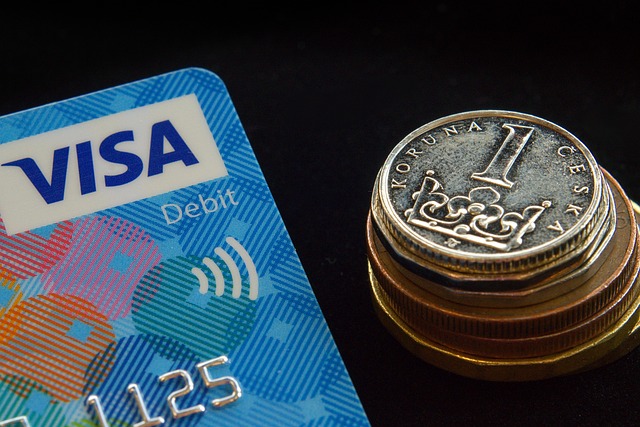Investor and Entrepreneur Visa Options in Belgium: A Comprehensive Guide

Belgium offers several visa options for investors and entrepreneurs looking to establish or expand their businesses within the country. These visas are designed to attract foreign talent, stimulate economic growth, and promote innovation. If you’re considering launching a startup, investing in Belgian enterprises, or relocating your business to Europe, understanding the available pathways is crucial. Below is a detailed guide to investor and entrepreneur visa options in Belgium.
1. Overview of Investor and Entrepreneur Visas
Belgium provides specific immigration programs tailored to individuals who wish to contribute to the economy through investment or entrepreneurship. These visas typically fall under the broader category of “Single Permits” (Permis Unique / Enkele Werkvergunning), which combine work authorization and residency permits.
Key Benefits of Investor and Entrepreneur Visas
- Legal residency in Belgium.
- Access to the Schengen Area for travel within Europe.
- Opportunities to grow your business in a strategic European location.
- Potential pathways to permanent residency or citizenship after meeting certain conditions.
2. Types of Investor and Entrepreneur Visas
There are two primary pathways for investors and entrepreneurs:
A. Entrepreneur Visa
This visa is designed for individuals planning to start or manage a business in Belgium. It requires demonstrating that your venture will contribute positively to the local economy.
Eligibility Criteria
- Business Plan: Submit a detailed and viable business plan outlining your project, market analysis, financial projections, and job creation potential.
- Funding: Prove sufficient capital to launch and sustain your business. The required amount varies but typically starts at €50,000–€60,000.
- Economic Contribution: Show how your business will benefit Belgium, such as creating jobs or introducing innovative products/services.
- Professional Qualifications: Provide evidence of relevant experience or skills related to your proposed business.
Application Process
- Prepare Your Business Plan: Work with legal or business consultants to create a compelling proposal.
- Submit Application: File your application with the regional authority where your business will be located:
- Flanders: Department of Economy, Science, and Innovation.
- Wallonia: Directorate-General for Economic Development, Employment, and Innovation.
- Brussels-Capital Region: Actiris.
- Approval: If approved, you’ll receive a provisional permit valid for one year, renewable based on progress.
- Residence Permit: After approval, apply for a long-stay visa (D Visa) at the Belgian embassy or consulate in your home country.
B. Investor Visa
The investor visa is aimed at individuals making significant financial investments in Belgium. This option is less common than the entrepreneur visa but may be suitable for high-net-worth individuals.
Eligibility Criteria
- Minimum Investment: Typically requires an investment of at least €350,000 in a Belgian company or real estate.
- Job Creation: Demonstrate that your investment will lead to job creation or economic development.
- Clean Record: Provide a criminal record check and proof of good standing.
Application Process
- Identify Investment Opportunity: Partner with a Belgian company or invest in real estate.
- Submit Documentation: Include proof of investment, business registration, and economic impact assessment.
- Regional Approval: Similar to the entrepreneur visa, applications are processed by regional authorities.
- Long-Stay Visa: Once approved, apply for a D Visa at the Belgian embassy or consulate.
3. Additional Programs for Entrepreneurs
Belgium also offers specialized programs for certain categories of entrepreneurs:
A. Startup Visa
- Targeted at innovative startups with high growth potential.
- Requires endorsement from recognized incubators, accelerators, or innovation hubs.
- Applicants must demonstrate scalability, technological innovation, and a clear market need.
B. EU Blue Card
- For highly skilled professionals, including tech entrepreneurs.
- Requires a binding job offer or contract with a minimum salary threshold (approximately €56,000 annually).
- Offers faster processing and additional benefits, such as mobility within the EU.
4. Required Documents
Regardless of the visa type, you’ll need the following documents:
- Valid passport.
- Completed application form.
- Detailed business plan or investment proposal.
- Proof of funds (bank statements, investment certificates, etc.).
- Criminal record check.
- Medical certificate.
- Passport-sized photos.
- Proof of accommodation in Belgium.
5. Processing Times and Fees
- Processing Time:
- Entrepreneur visas: 4–12 weeks.
- Investor visas: Varies depending on complexity.
- Fees:
- Application fees range from €200–€500.
- Long-stay visa fee: Approximately €180.
6. Rights and Obligations
Once granted a visa, you’ll have specific rights and responsibilities:
Rights
- Reside and work in Belgium.
- Travel freely within the Schengen Area.
- Access public services, including healthcare and education.
Obligations
- Maintain active involvement in your business or investment.
- Comply with tax and reporting requirements.
- Renew your permit periodically (usually every year for entrepreneurs).
7. Pathway to Permanent Residency and Citizenship
- Permanent Residency: After five years of continuous legal residency, you may qualify for permanent residency.
- Citizenship: After ten years of residency (five years if married to a Belgian citizen), you can apply for naturalization, provided you meet language and integration requirements.
8. Tips for Success
- Develop a Strong Business Plan: Highlight the uniqueness, feasibility, and economic impact of your project.
- Partner with Local Experts: Collaborate with lawyers, accountants, or business consultants familiar with Belgian regulations.
- Network Locally: Build relationships with Belgian entrepreneurs, chambers of commerce, and industry associations.
- Stay Compliant: Adhere to all legal, tax, and reporting obligations to avoid complications.
9. Challenges to Consider
While Belgium offers attractive opportunities, there are challenges to keep in mind:
- Language Barrier: Depending on the region, proficiency in Dutch, French, or German may be necessary.
- Bureaucracy: The application process can be lengthy and complex.
- Competition: Certain sectors may have high competition or regulatory hurdles.



